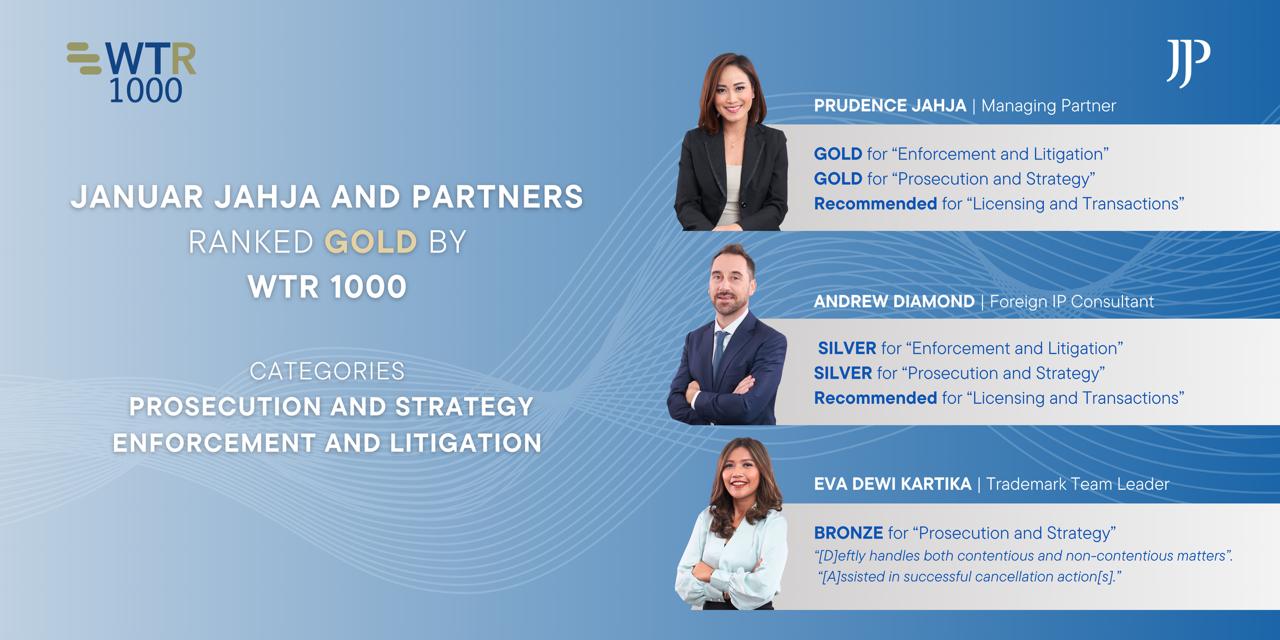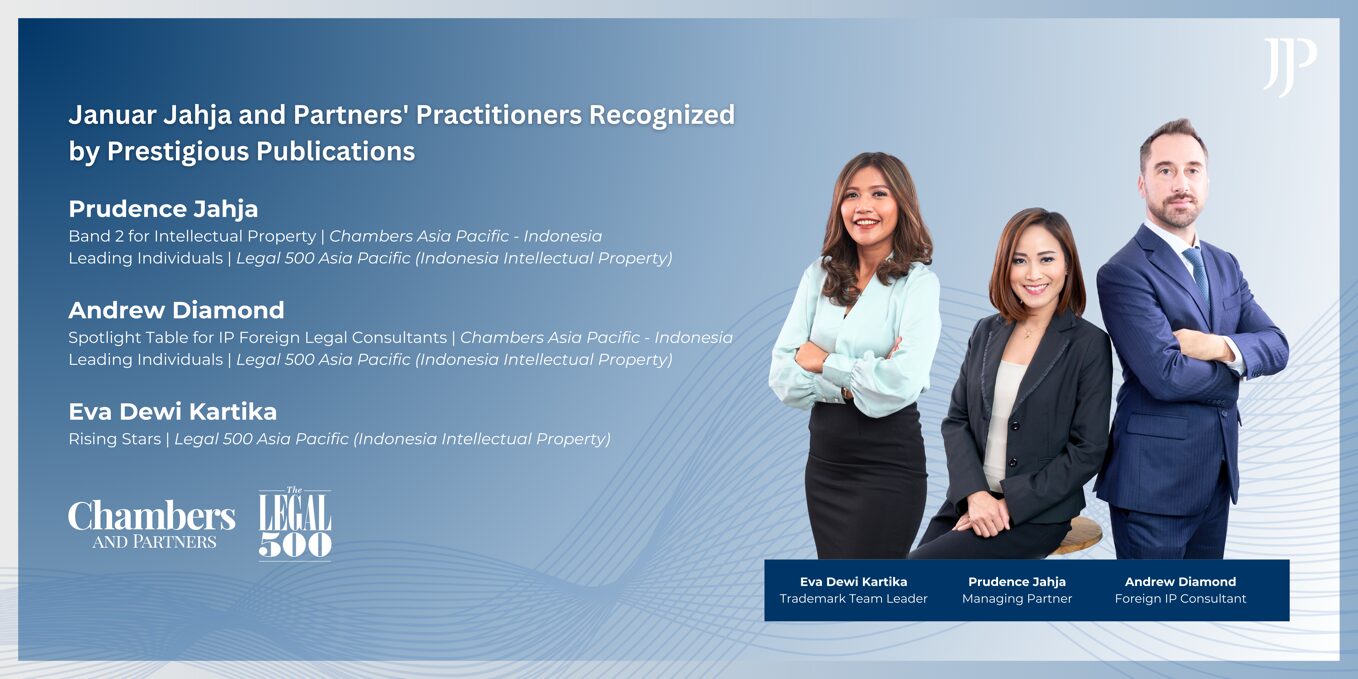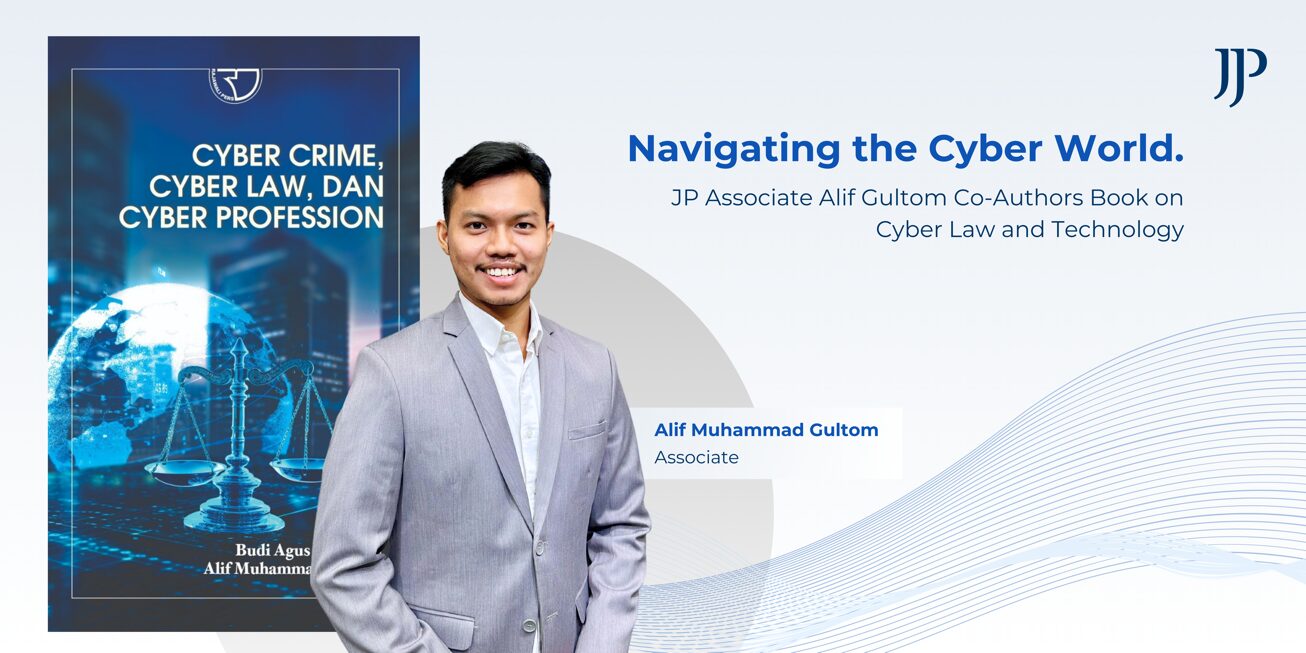Prudence Jahja and Andrew Diamond, Januar Jahja and Partners
*This article originally appeared in Managing IP (Dec. 2020), https://www.managingip.com/article/b1plvmz4t3b5b8/controversial-omnibus-law-introduces-new-rules-on-patents-and-trademarks
In the midst of a pandemic that has disrupted economic activity so much so that Indonesia recently entered its first recession in over two decades, a proposed law on job creation brought thousands of protesters out to Jakarta’s now almost deserted streets. The law weakens worker and environmental protections in the name of increasing business ease and underwent a somewhat unconventional and confusing path to implementation (there were four separate final drafts circulating at one point with differences of hundreds of pages). As a result, the law has been controversial from beginning to end. In its final form, it is over 1,100 pages long and amends approximately 75 separate laws, packaged together as the Job Creation Law No. 11 of Year 2020 or just the Omnibus Bill.
Interestingly, the revisions relating to patent and trademark law are some of the least controversial aspects of the new law. In fact, the amendments to the Patent Law in particular may even be met with enthusiasm, while revisions to the administration of trademarks and simple patents have the potential to substantially reduce pendency times for applications for these two IP rights.
Trademarks
There are several provisions in the Trademarks and Geographical Indications Law (No. 20 Year 2016) that have been amended by the Omnibus Law. These amendments can be grouped into three categories:
1) Absolute grounds for trademark refusal;
2) Substantive examination of marks; and
3) Trademark certificates.
Article 20 of the 2016 Trademark Law regulates the absolute grounds of refusal for non-registrable trademarks, such as those that are contrary to state ideology, applicable regulations/laws, religious morality, or public order; marks that are descriptive; contain misleading information; lack distinctiveness; or constitute a common name/public sign. Now, one more absolute ground has been added to Article 20 in new subsection (g), which states that a mark cannot be registered if it contains a form that is functional. While there has been no official explanation regarding this addition and the elucidation does not provide any further information or examples, it is thought to be linked to applicants filing non-distinctive packaging as trademarks, primarily due to the lack of separate trade dress/passing off protection.
With regards to substantive examination of trademark applications, the 2016 Trademark Law merely stated that such examination must begin within 30 days of the end of the publication period and must be completed within 150 days, for a maximum total of 180 days. Now the relevant provisions in Article 23 have been revised so that the substantive examination period will begin once the publication period has ended. The provisions also differentiate between applications that have been opposed and those that have not been opposed. For applications that are opposed, the examination shall be completed within 90 days. For applications that are not opposed, the substantive examination shall be completed within 30 days. If the trademark office is able to meet these statutory timelines, this would greatly reduce the total time from filing to grant for trademark applications in Indonesia.
Lastly, with regards to the issuance of trademark registration certificates, the 2016 Trademark Law stated that if registration certificates are not picked up within 18 months after issuance, the trademark would be considered withdrawn and removed from the registry. This provision has now been removed and is no longer valid.
Patents
The changes related to patents focus on the controversial Article 20, which required that patent holders practise their patents in Indonesia within three years from grant. If the patent was not practised, it was then vulnerable to compulsory licence. The stated goal of this “working requirement” was “to support technology transfer, absorb investment, and provide employment.” Needless to say, this requirement met with fierce resistance from the moment it became law in October 2016, with many patent holders, foreign governments, and business associations arguing that it would not fulfil its objectives and instead would discourage patent filings in Indonesia.
As a compromise, the Indonesian government introduced a system whereby patent holders could apply for postponement of the deadline to work their patents in Indonesia. By this time, discussions regarding revisions to the Patent Law, in particular the Article 20 use requirement, had already begun in earnest and the postponement system was introduced as a temporary mechanism. It appears now to have been abolished as it is not provided for or mentioned at all in the revisions to the Patent Law. Hopefully the patent office will provide clarity on this issue soon.
Originally, the expectation was that Article 20 would be deleted in its entirety, thereby abolishing the working requirement altogether. However, the final version of the Omnibus Law does not do that and instead loosens the requirement by expanding the definition of activities that would satisfy the working requirement. Previously, Article 20 stated that “a patent holder is obligated to produce the patented product or use the patented process in Indonesia.” Now, Article 20 has been revised to state that a “patent must be implemented in Indonesia” and the term “implemented” means “producing, importing, or licensing,” meaning that any of these activities would now satisfy the working requirement. Under corresponding Article 82 as amended, “a patent that is not implemented in Indonesia within 36 months from the grant date” can be subject to a compulsory licence.
As such, while the three year “working requirement” remains in effect, its provisions have been loosened to allow more activities to satisfy this requirement, a sort of middle-of-the-road approach that may not leave everyone happy but also will not be as controversial as the original Article 20 requirement.
Simple patents
The Omnibus Law contains a number of substantial changes to simple patents as well. Primarily, the very definition of a simple patent has been modified to be as follows: “a new invention, development of an existing product or process that has a practical use, and is industrially applicable” (emphasis added, Article 3(2)). The “practical use” language has been added to the definition while “development of an existing product or process” is defined for the first time as involving “a simple product, simple process or a simple method” (Article 3(3)).
The revisions also now require that a request for substantive examination of a simple patent is filed together at the same time with the application itself, whereas previously the request could be filed up to six months thereafter (Article 122(2)). Further, publication is to take place at the latest 14 days from the receiving date of the simple patent application, while the publication period has been shortened from two months to 14 working days (Article 123(1) & (2)). The substantive examination period has also been reduced from 12 months to six months from the receiving date of the simple patent application. Together, these changes have the potential to speed up the simple patent process greatly in Indonesia.




